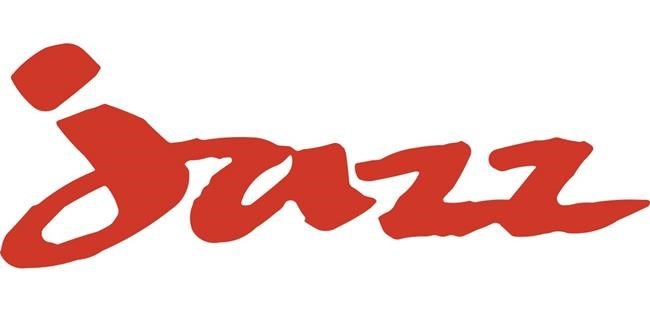MONTREAL — The union representing 1,260 pilots at Jazz Aviation claims their employer and Air saąúĽĘ´«Ă˝ have breached the saąúĽĘ´«Ă˝ Labour Code, even as it ratified changes to their collective agreement.
On Monday, the Air Line Pilots Association filed a complaint with the saąúĽĘ´«Ă˝ Industrial Relations Board arguing that both airlines violated the exclusivity deal between the two and reduced the pipeline of pilots from one carrier to the other.
Surrounding the dispute is a nationwide shortage of pilots and a debate over compensation, as U.S. counterparts win big wage gains and labour unions gear up for negotiations north of the border.
Jazz, a subsidiary of Chorus Aviation Inc., provides regional service for the country's biggest airline under the Air saąúĽĘ´«Ă˝ Express brand. But in May, Air saąúĽĘ´«Ă˝ CEO Michael Rousseau announced a "bridging arrangement" with St. John's, N.L.-based company PAL Airlines to boost the number of regional flights in Eastern saąúĽĘ´«Ă˝ amid strains on Jazz's capacity.
Tim Perry, president of the Air Line Pilots Association's Canadian segment, said that the deal was out of bounds due to the contract between Jazz and Air saąúĽĘ´«Ă˝.
"The arrangement was that it was exclusivity. So when flying was assigned or when deals were struck with PAL, we're basically saying that that was done in contravention of previous agreements," he said in a telephone interview from Winnipeg.
Rather than boost compensation and benefits to pilots — and thus attract and retain more in order to expand flight capacity at Jazz — management took another he route, he said.
On top of partnering with PAL, that path also saw Montreal-based Air saąúĽĘ´«Ă˝'s "micromanaging what Jazz and Chorus are able to work out in bargaining" and setting an effective cap on Jazz's spending, Perry claimed.
Air saąúĽĘ´«Ă˝ and Jazz also encroached on pilots' labour rights by "refusing to comply with contractual pilot 'flow' agreements," which see a certain number of pilots trickle from Jazz to Air saąúĽĘ´«Ă˝ each year, according to a union statement.
Air saąúĽĘ´«Ă˝ said it is reviewing the union's filing, noting the airline has a long-standing relationship with Jazz.
"This relationship has been instrumental in our ability to serve communities throughout saąúĽĘ´«Ă˝. As this matter is in front of the board, we will not comment further on the complaint's merit," spokesman Peter Fitzpatrick said in an email.
"With respect to PAL, it is in the context of Jazz’s pilot availability challenges and our desire to continue serving certain communities that some interim lift was acquired through PAL."
Halifax-based Chorus said it does yet have the full details of the complaint against its subsidiary, and does "not comment on matters before the labour board or any court or tribunal."
"Jazz has a strong history of finding solutions and collaborating effectively with its unions. We look forward to working with ALPA to better understand and resolve their concerns," spokeswoman Lauren Dunn said in an email.
Jazz pilots launched the unfair labour practice complaint the same day — Monday — that they ratified an amended collective agreement with their employer.
Jazz president Randolph deGooyer said the tweaked deal recognizes the upward shift in pilot wages and expands the airline's recruitment and training options.
"These changes will further position Jazz as the leading regional operator in saąúĽĘ´«Ă˝," added Chorus president Colin Copp.
The new settlement will not affect its financial results, the company said.
The agreement will help Jazz lure aviators, "given the solid career path offered for pilots joining Jazz, and it allows a constant flow up to Air saąúĽĘ´«Ă˝," Air saąúĽĘ´«Ă˝'s Fitzpatrick said.
The flow may be continuous, but it's also sharply reduced. The modified deal, which takes effect on Friday, specifies that 30 per cent of all Air saąúĽĘ´«Ă˝ pilot hires must be from Jazz, down from 60 per cent previously, according to Claude Buraglia, head of the union's Jazz chapter.
Last year, some 295 pilots should have transitioned to Air saąúĽĘ´«Ă˝ from Jazz, he said.
Instead of ratcheting up an already-high turnover rate at Jazz by nabbing their flight crews — and thus decreasing the capacity of a regional carrier that Air saąúĽĘ´«Ă˝ relies on for thousands of trips per week — the country's dominant carrier looked elsewhere for workers to fly its planes, Buraglia said.
"We've lost an immense amount of pilots not just Air saąúĽĘ´«Ă˝," he said. "Porter's hired a bunch of our pilots, WestJet ... because the wages have stagnated at Jazz."
The union made the concession to narrow the pilot pipeline from Jazz to Air saąúĽĘ´«Ă˝ this week partly in exchange for better compensation.
"Starting pay was around $42,000 a year. And the largest raise (in the modified deal) went to those junior pilots, up to $60,000 or so," Buraglia said.
The changes come as Air saąúĽĘ´«Ă˝ pilots negotiate a new agreement with management, with the clock ticking down on the current deal, which expires on Sept. 29. Its provisions will remain in place after that date as bargaining carries on.
Labour shortages continue to plague the aviation industry as the sector emerges from COVID-19 and the past year's travel turmoil, with a dearth of workers in areas ranging from air traffic control to ground handling.
In March, Delta Air Lines pilots secured a deal that includes a 34 per cent pay hike over four years.
American Airlines pilots ratified an agreement last week that their union has said will bring it in line with gains for flight crews at United Airlines.
Aviators at that carrier reached a US$10-billion deal in July that would hike pay by up to 40 per cent over four years.
This report by The Canadian Press was first published Aug. 29, 2023.
Companies in this story: (TSX:CHR, TSX:AC)
Christopher Reynolds, The Canadian Press



